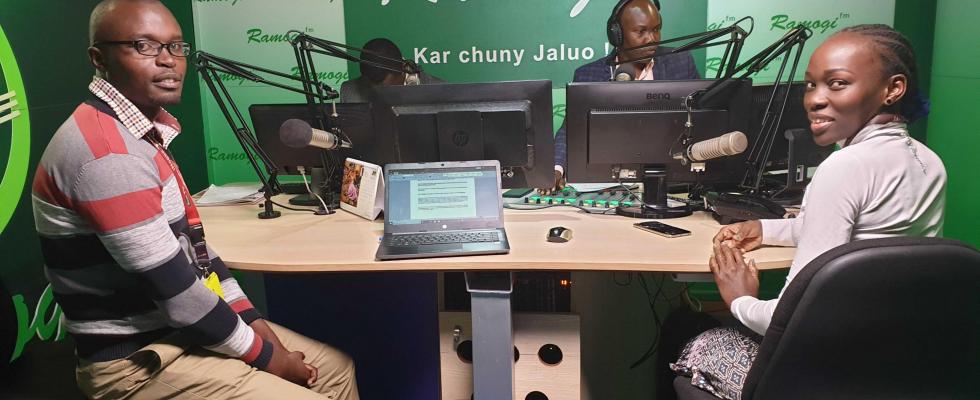Containing and stopping the new coronavirus pandemic requires equitable access to trusted, reliable information. Nonetheless, rapidly informing and empowering communities to stay healthy and safe as we combat the outbreak is only one part of the story. Any effective public health response will require an elaborate understanding of people’s perceptions around risk and preparedness to understand their concerns and refine outbreak responses to address their fears.
In many parts of Sub-Saharan Africa, responses to the recent Ebola virus outbreak have illustrated that a purely biomedical approach to disease control can result in community distrust and even resistance. The burning and looting of several Ebola treatment facilities in the Eastern Democratic Republic of the Congo best illustrate the widespread community distrust towards health agencies. Now, as the continent prepares to face the new challenges posed by COVID-19, there is an urgency to act on the lessons learnt from containing Ebola: to integrate social scientific research with epidemiological data, local involvement, and an understanding of the socio-cultural context.
Two years ago, with colleagues from the Centre for Governance and Human Rights at the University of Cambridge and with support from Wellcome Trust and DFID [the United Kingdom (UK) Department for International Development], we evaluated our interactive radio methodology as a tool for rapid research and health communications in the context of the 2017 cholera epidemic that devastated Somalia and the zika virus outbreak in West Africa. In Somalia, we heard from nearly 7,000 people, many of whom from traditionally marginalised groups: 45% were women and 23% IDPs [internally displaced persons]. Together, they sent nearly 13,000 messages. The data we collected could serve as early warning ahead of an outbreak but also point to specific socio-cultural factors that could influence a programmatic intervention during a future cholera outbreak. You can experience our method and see the outcomes here.
Fast-forward to 2020, interactive radio coupled with two-way SMS communications is leading our response to the COVID-19 pandemic response in Kenya. On March 8th, we launched a collaboration with Radio Africa Group to air Public Service Announcements (PSAs) and interactive radio shows to provide immediate high-quality public health content, establish a trusted communications space and garner rapid social insights for future content. The shows are broadcast nationwide in Kiswahili.
The pilot results so far, after five days of PSAs and interactive radio shows, are extremely encouraging. Our first show on Radio Jambo aired at 11am on Monday 16th March and reached an estimated 5 million+ listeners. The show featured Dr Moses Miua Masika, a virologist at the University of Nairobi as an expert guest, focusing on priority issues derived from the citizen messages shared in response to the PSAs. We heard from over 2000 Kenyans (68% men, 32% women) from across the country who have sent over 3800 messages, including 1150 questions. Using katikati, our unique platform for one-to-one communications powered by innovative human-centred technology, we (humans, not bots!) were able to respond to every single question individually. Citizen priorities so far are questions on what coronavirus is, its symptoms, prevention, treatment, the number of cases in Kenya, and the government’s response.
The messages we received demonstrate a tremendous richness of citizens’ voices. We have particularly found that there are some misconceptions around symptoms, such as concerns with stomach aches and also anxieties for distinguishing COVID-19 symptoms from flu. The level of anxiety among Kenyans is clearly high. There is an increasing desire for detailed information on the status of cases in Kenya and the government response, which has spiked in the last few days. Rumours and misconceptions, though much more limited than expected, primarily focus on the idea of a ‘biological war’ of uncertain origin. Based on this, we’re refining content for both the radio shows and for the tailored individual SMS responses.
…Building off the initial pilot phase we are proposing an expanded ‘national sprint’ over three months, April to June 2020…
Image credit: AVF
This story was written by Elena Georgalla an external relations and communications manager at Africa’s Voices. Five years’ experience in delivering development programmes in DRC, Uganda, Somalia, Kenya and Tanzania.

